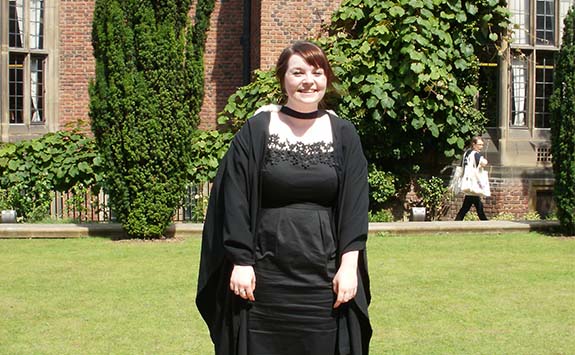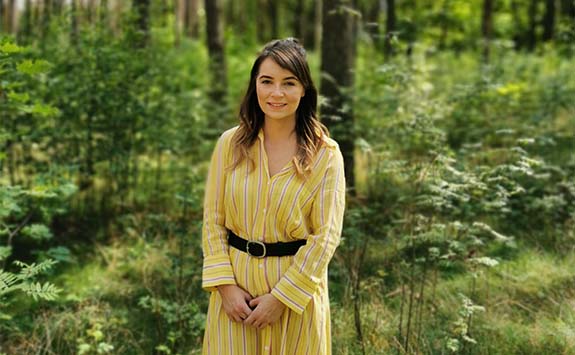Joanne McGarey
Following the conclusion of her English Literature degree (BA), Joanne decided to transition into the legal field. She studied a Graduate Diploma in Law and currently works as a Senior Crown Prosecutor in the Rape and Serious Sexual Offences unit.
About Joanne's career
Describe your current role:
I work as a Senior Crown Prosecutor in the Rape and Serious Sexual Offences (RASSO) unit at the Crown Prosecution Service. My role involves reviewing cases brought to us by the police and making a decision on whether to charge the suspect. If charged, I would have conduct of the case throughout the whole court process until the conclusion of any eventual trial.
There is no room for ‘maybes’ in my line of work, the decision to charge or stop a case rests solely with me. My Literature background equipped me well for this role. My university work involved analysing texts and again coming to clear conclusions.
How did you get into this field after studying English Literature at Newcastle?
I made a very last-minute decision to study a Graduate Diploma in Law following the conclusion of my English Literature degree. Following this, I secured a full-time job as a casework/admin assistant at the Crown Prosecution Service (CPS) in Leeds while I completed my Legal Practice Course (LPC) on a part-time basis. I was lucky enough to secure a place on the CPS Legal Trainee programme upon finishing my LPC and was admitted as a solicitor two years later. I was promoted to Senior Crown Prosecutor a year later and immediately applied for a job on the Rape and Serious Sexual Offences (RASSO) unit, which I was successful for. It was always my goal to work in the RASSO unit; I made the decision to go into law as I wanted to help people, particularly those who were most vulnerable. Prior to securing the position in the RASSO unit, I was the team lead for Domestic Violence cases in the Magistrates Unit.
Studying English Literature at Newcastle University
How has studying English Literature at Newcastle helped you in your career?
My role involves a lot of written work, and as a government body, we are subject to outside scrutiny, and our decisions can be challenged and appealed. I, therefore, have to make sure that my reviews are detailed, thorough and that my reasoning is clear. I have to balance both sides of the argument and make a clear decision. There is no room for ‘maybes’ in my line of work, the decision to charge or to stop a case rests solely with me. I think that my background in English Literature equipped me very well for this role, as this approach is very similar to how I approached my university work which involved analysing texts and again coming to clear conclusions. The quality of my writing also has to be strong, which is another skill honed by my English Literature degree.
What advice would you give to a student interested in studying English Literature?
Do not stop reading for pleasure! It might seem difficult when you are in the middle of a degree and expected to read a different (sometimes very long) book every week, but please make time when you can to simply read for the pleasure of it. Also, don’t listen to anybody who says you won’t be able to build a career from an English Literature degree – you absolutely will. The number of transferable skills you will gain from your degree are numerous (analytical, problem-solving, writing), and you get to do it all while reading loads of fantastic and interesting books, so it’s a win-win situation.
What was the best thing about studying English Literature at Newcastle?
The diversity and flexibility of the course. Over the course of my three years at Newcastle, I studied a fantastic mix of texts, from Beowulf to Dracula, Frankenstein to District 9, Jane Austen and Virginia Woolf to fairy tales. I wrote a chapter of my dissertation on the television show “Lost” and an essay for my Science Fiction module on “Battlestar Galactica”. Even 12 years later, some of my favourite books are ones that I studied at University, I must have read Persuasion at least five times now, and Dracula still blows my mind. The staff are so enthusiastic in their fields that it was impossible not to get excited about what we were studying, and every year there were always modules that were oversubscribed. University was also where I was first properly introduced to Feminism, and it really did have a huge impact on me and changed how I viewed the world.


